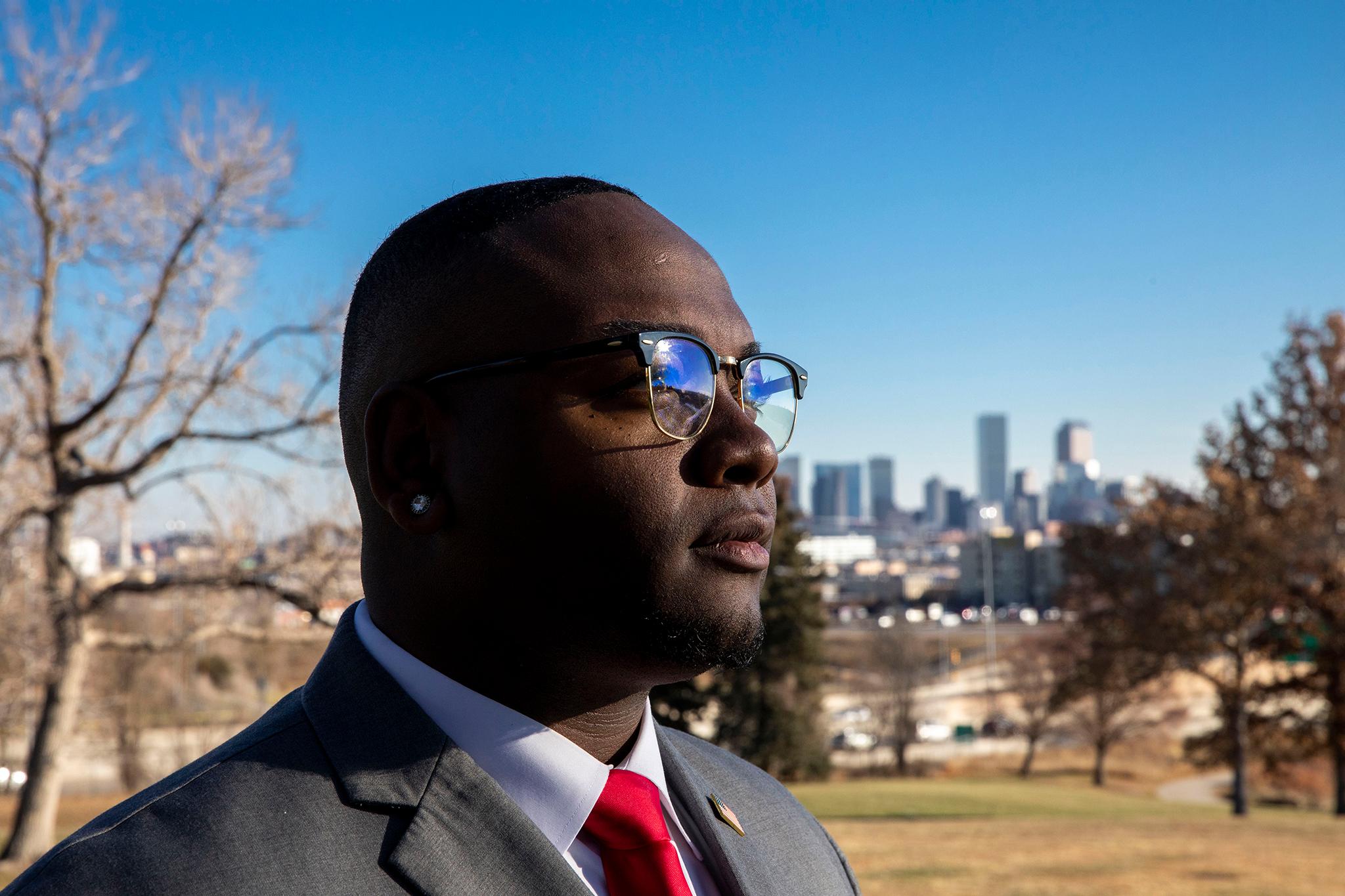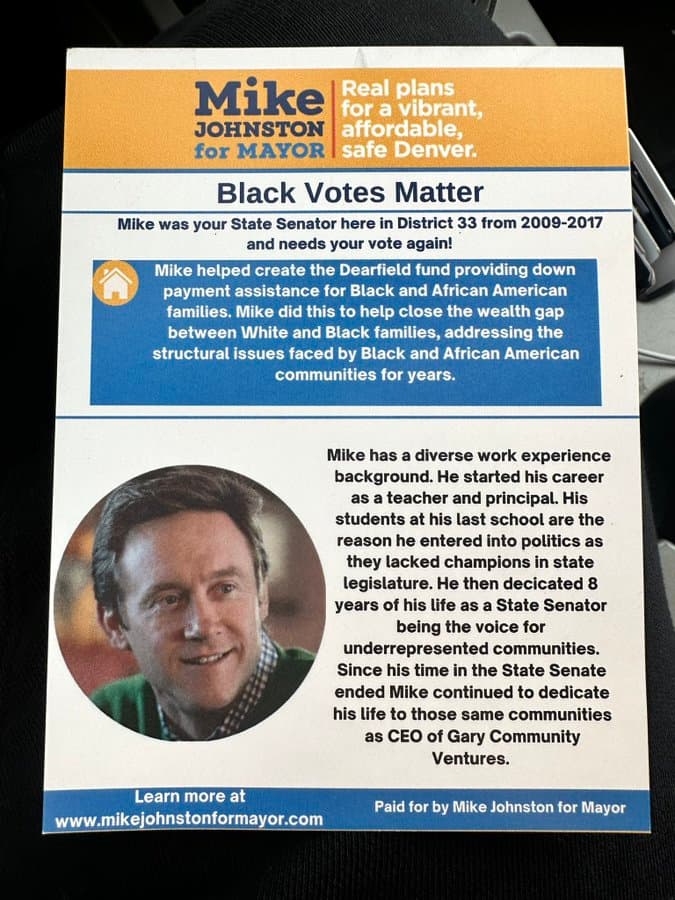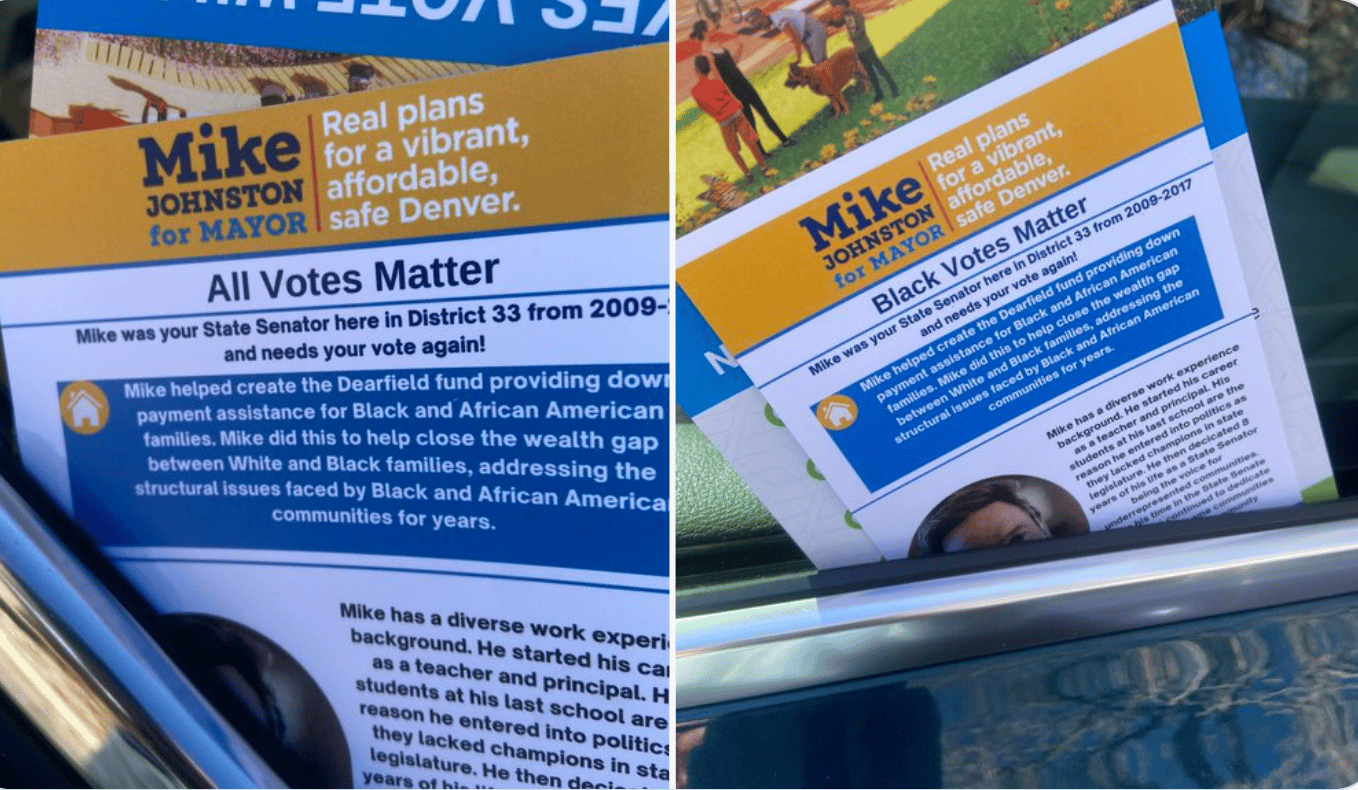Denver School Board member Auon'tai Anderson said he was "disgusted" when he saw how former State Sen. Mike Johnston's Denver mayoral campaign targeted Black and white voters differently, using what Anderson said were "segregationist tactics."
Over the weekend, he learned the campaign was passing out flyers that said "Black Votes Matter" outside the historically African American Shorter Community AME Church and very different "All Votes Matter" flyers outside a nearby mostly white organization.
The messaging echoed the response to the "Black Lives Matter" slogan, "All Lives Matter," which was used in campaigns opposing racial justice movements.
The flyers were official campaign materials, a Johnston campaign spokesperson said.
"When people say 'Black lives matter,' we're not saying all lives don't matter," Anderson said. "We're saying right now the system is designed to where it has shown us time and time again that our lives aren't valued the same as other individuals. That's the same message this is sending."

Why not pass out the same message at both churches? Why echo "all lives matter" when interacting with a whiter constituency and "Black lives matter" when interacting with a Blacker constituency?
On Twitter, Anderson posted the following:
The flyers were paid for by "Mike Johnston for Mayor," according to a note at the bottom.

But Johnston said he had not seen the campaign materials.
"As soon I saw them I pulled them entirely out of circulation," he explained on Twitter.
He then proceeded to quote John Bailey, the Colorado Black Round Table chair and vocal supporter, whom Johnston called his "community partner":
Bailey has not returned a request for comment, and Johnston's campaign pointed to his social media statement when asked about the flyers.
"I think the campaign has to take some accountability and not just throw it on Mr. Bailey," Anderson said. "This has their 'paid for' on it."

Courtesy: Auon'tai Anderson.
Here's Bailey's take.
The campaign flyer with "Black Votes Matter" aimed to address voter suppression that has disenfranchised the Black community from participating in elections, Bailey said.
While he can understand where Anderson was coming from -- and counts himself as a supporter of the school board director -- he said the different versions of ads had nothing to do with segregationist philosophies or Black Lives Matter.
"When you kind of look at it, from a social justice perspective, I can kind of understand maybe where Tay is coming from," Bailey said.
But there were multiple versions of the flyer that were "all part of a strategy that had nothing to do with segregationist or Black Lives Matter," Bailey said. "It has to do with how do we engage the faith community with a strategy that we could then use as a pathway to victory during the election.
"To be able to characterize it as a segregationist attack is really far-fetched," he added. "That being said, it's a matter of interpretation and worldview."
This is not the first time candidates have been called out for campaign messaging.
State Sen. Chris Hansen's ad about solving homelessness and crime depicted largely Black and Latino people as criminals and unhoused Denverites.
Ean Thomas Tafoya, Kwame Spearman, Leslie Herod and Lisa Calderón called Hansen out over it at a recent 9News debate.
Spearman, himself, has been under fire from immigrant rights activists and others who objected to his willingness to collaborate with federal immigration officials on detaining undocumented people who commute to Denver for work, were he to become mayor -- a sharp deviation from Denver's immigration policy.
"This is not the city where people who are here illegally are necessarily living," Spearman told a conservative talk radio show. "They may be working here, but from a living perspective, I think there are opportunities for us to apply the letter of the law."
This story has been updated with comments from John Bailey.











